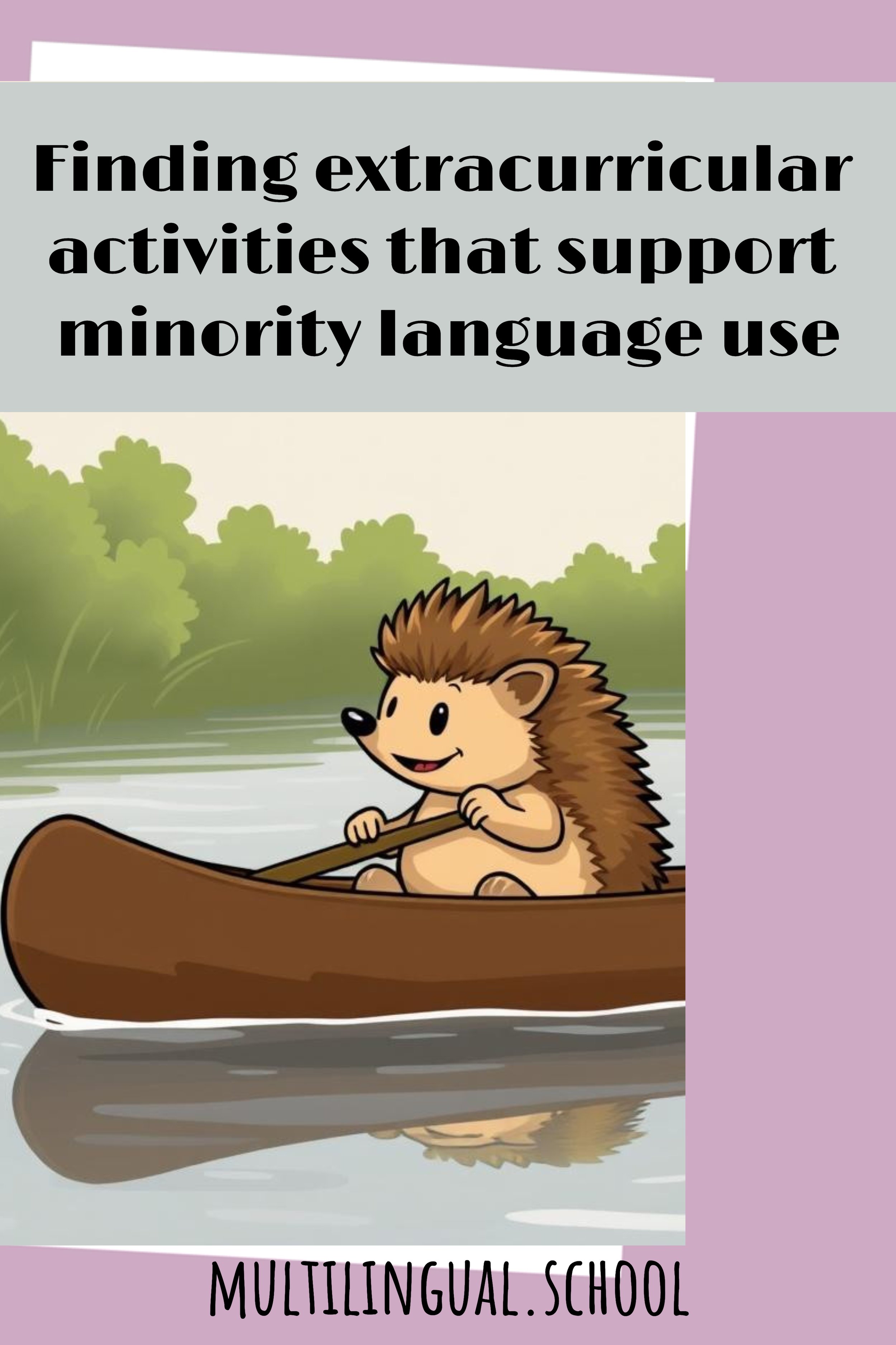Finding extracurricular activities that support native language use
This post may contain affiliate links, which means that I may receive a commission if you make a purchase using these links. You do not pay a higher price.
Boosting your minority language through extracurricular activities
When raising a bilingual or multilingual child, one way to foster language development is through a diverse input of language in various situations of life. The key aspect here is not only exposure for the sake of vocabulary, but more importantly to create a sense of social proof as I would call it. You as parents want to show to your child that the minority language in question is relevant in the outside world, and not only a snowflake occurrence at home.
Therefore, finding extracurricular activities in your target language is a recommended way to create social community and belonging in your minority language. This way, your child explores enticing activities while building social connections in the minority language.
Sounds amazing, right. How do you find these extracurricular activities, though? Here are some ways we found access to playgroups, local events, heritage language schools, and libraries.
Embassy & Institutes: The embassy or representative institution of the country of origin (ie. where your minority language is the majority language) sometimes runs a library in your area. Maybe they are hosting regular events, some specifically targeted to children. For example, the Goethe Institute is represented in almost all countries and you might be able to get access to a German library through them in your region. Similarly, the Camões, I.P. promotes the Portuguese language in all countries of the world. There, you will find an overview of libraries and events in your particular region.
Heritage language schools: In regions all over the world, local expat organisations might have created an afternoon or Saturday school for your heritage language. These usually focus on a fixed schedule group session to transmit language and cultural heritage in a playful and engaging way. As the child grows, they usually also help with language literacy. Since the target group is native speakers, these schools provide a great opportunity for your child to find other friends that are in a similar multilingual situation.
Bilingual daycares/schools: In bigger cities, you oftentimes find bilingual or immersion daycare options in your minority language. If this is a viable path for you and your child, you might be able to combine your minority language with daycare. Even if the daycare option is not the right choice, I would speak to them about extracurricular activities they offer. Sometimes your child might be able to attend some extracurriculars in your minority language without attending the daycare/school. For German daycares around the world, you can take a look on this website (“Verzeichnis deutscher Kindergärten im Ausland”). For Portuguese, I haven’t found such a directory yet (Please ping me if you know something like that!).
Local expat communities: For an introduction into the available choices in your specific area, I recommend that you join your local expat community. They usually have an overview what’s on the market in the region. There, you can also usually tap into privately organised events or you might even be able to schedule playdates.
Local playgroups & hobbygroups: Similar to your expat community, you might be able to find local playgroups organised by expat parents, churches, or international kindergartens.
Online offerings: Depending on the age of your child, you can explore what online activities are being offered in your minority language. This way, your child virtually connects to children of the same language and engages in online events. Some of the offerings connect online and offline play. For example, they would run projects or crafts that the child would continue beyond the online meeting. One benefit is that you are not bound to your local area, but you can pick and choose offerings from around the world, even those that are not targeted to expats but to the local community in your country of origin.
This list should give you a good starting point to find extracurricular activities in your area. Specifically for German input, this blog post covers more specific education choices. Hopefully, you can find the right choice for you in your own target language. If you cannot find anything in your region, you could even consider creating something yourself. You are probably not the only minority language speaker in your region, so maybe others are interested in starting something new with you.













